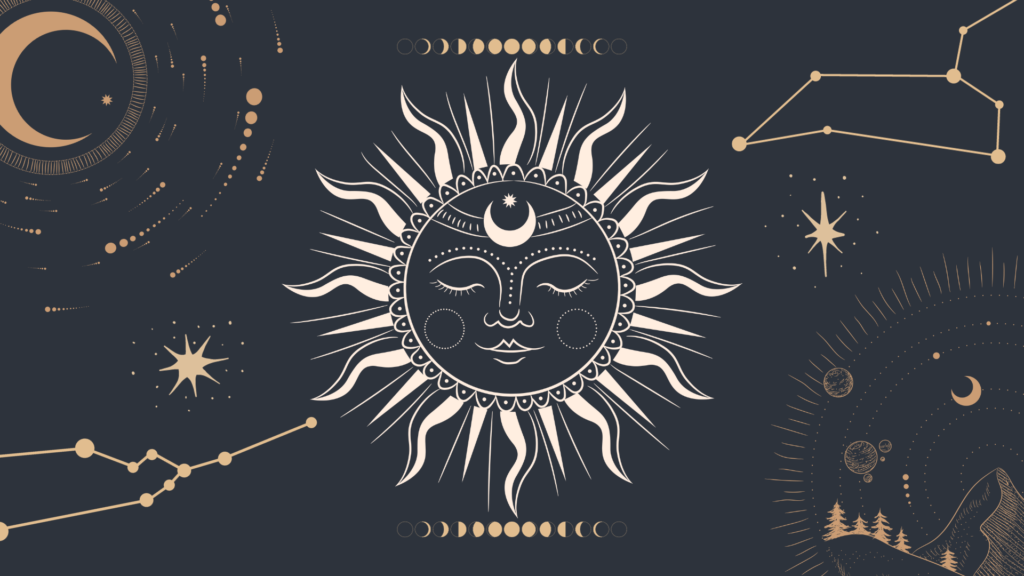Astrology, an ancient belief system that examines the celestial bodies’ influence on human affairs, assigns great significance to the sun. As the central luminary in our solar system, the sun is considered a symbol of vitality, energy, and life force in astrological traditions. Its impact on human life, as per astrology, extends beyond the physical realm, influencing personality traits, life path, and overall well-being.
In astrology, the sun represents the core of an individual’s identity and is associated with the zodiac sign under which a person is born. The position of the sun at the time of one’s birth is captured in the natal chart, a personalized map detailing the positions of celestial bodies. This sun sign is a crucial element in shaping an individual’s basic characteristics and is often the first astrological factor considered when interpreting a person’s astrological profile.
The sun’s influence on human life, according to astrology, is most evident in shaping an individual’s personality. Each zodiac sign is linked to specific traits and qualities, and the sun sign provides a foundational understanding of an individual’s inherent nature. For example, a person born under the sun sign of Aries is associated with qualities like boldness, initiative, and assertiveness, while a Cancer individual may exhibit nurturing and empathetic traits.
Beyond personality traits, the sun’s position in an astrological chart is believed to influence an individual’s life path and purpose. Astrologers often analyze the sun’s house placement and aspects to other planets to gain insights into the person’s goals, ambitions, and potential challenges. The sun is seen as a guiding force, shedding light on the individual’s journey and illuminating the path toward self-discovery and fulfillment.
The sun’s energy is also associated with vitality and overall well-being. In traditional astrology, the sun is considered the ruler of the vital life force, representing physical strength and resilience. An individual’s sun sign is believed to influence their general health tendencies, and certain astrological remedies or practices are sometimes recommended to balance or enhance the sun’s energy for improved health.
Furthermore, the sun plays a pivotal role in determining astrological seasons and influences the overall energetic climate. The twelve zodiac signs are divided based on the sun’s apparent path through the sky, creating the familiar astrological calendar. Each season is associated with specific qualities and characteristics, and the transition from one sun sign to another is considered a significant energetic shift that can impact individuals on both personal and collective levels.
Astrology also recognizes the sun’s impact on one’s sense of self-expression and creativity. The sun sign is linked to an individual’s inherent talents and creative inclinations. Understanding this aspect of the sun’s influence can empower individuals to tap into their unique abilities, fostering a sense of purpose and satisfaction in their creative endeavors.
It’s important to note that astrology’s perspectives on the sun’s impact are symbolic and metaphorical rather than scientifically proven. While many find personal resonance with their astrological sun sign descriptions, others approach astrology with varying levels of skepticism. The interpretations of the sun’s influence in astrology are subjective and should be taken as a form of self-reflection and exploration rather than a deterministic guide.
In conclusion, as per astrology, the impact of the sun on human life is multifaceted, shaping personality, life path, and overall well-being. While astrology provides a symbolic framework for understanding these influences, individuals are encouraged to approach it with an open mind, recognizing the nuanced and subjective nature of astrological interpretations. Whether viewed as a guiding force or a tool for self-reflection, the sun’s role in astrology contributes to the rich tapestry of beliefs that explore the connection between the celestial and human realms.

